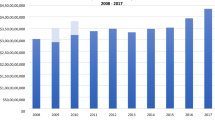Abstract
The Academy of Behavioral Medicine Research, the American Psychosomatic Society, the Society for Health Psychology, and the Society of Behavioral Medicine are the four largest behavioral medicine research organizations in North America. All four of these organizations have evolved over the past 40 years, in response to changing times and conditions. They have done so independently, and each one occupies a unique niche in the field of behavioral medicine. However, all four recognize the need for cooperation to address challenges of mutual concern and to capitalize on opportunities for behavioral medicine research to have a greater impact on preventive services and health care. The recent formation of the Behavioral Medicine Research Council (BMRC) is a prime example. As an autonomous joint committee of all four organizations, the BMRC will promote large, definitive, randomized controlled trials to address some of the highest-priority problems in behavioral medicine. This cooperative venture will help the entire field, along with the major behavioral medicine research organizations, continue to evolve in productive ways over the next 40 years.
Similar content being viewed by others
References
Academy of Behavioral Medicine Research. (2018). History of ABMR. Retrieved from http://www.academyofbmr.org/who-we-are/history-of-abmr
American Psychosomatic Society. (2018). History of APS. Retrieved from http://www.psychosomatic.org/about/index.cfm
Antoni, M. H., Bouchard, L. C., Jacobs, J. M., Lechner, S. C., Jutagir, D. R., Gudenkauf, L. M., et al. (2016). Stress management, leukocyte transcriptional changes and breast cancer recurrence in a randomized trial: An exploratory analysis. Psychoneuroendocrinology, 74, 269–277. https://doi.org/10.1016/j.psyneuen.2016.09.012
Birk, L. (1973). Biofeedback: Behavioral medicine. New York: Grune & Stratton.
Brownson, R. C., Colditz, G. A., & Proctor, E. K. (2012). Dissemination and implementation research in health: Translating science to practice. Oxford, NY: Oxford University Press.
Cole, S. W., Nagaraja, A. S., Lutgendorf, S. K., Green, P. A., & Sood, A. K. (2015). Sympathetic nervous system regulation of the tumour microenvironment. Nature Reviews Cancer, 15, 563–572. https://doi.org/10.1038/nrc3978
Collins, L. M., Baker, T. B., Mermelstein, R. J., Piper, M. E., Jorenby, D. E., Smith, S. S., et al. (2011). The multiphase optimization strategy for engineering effective tobacco use interventions. Annals of Behavioral Medicine, 41, 208–226. https://doi.org/10.1007/s12160-010-9253-x
Czajkowski, S. M., Powell, L. H., Adler, N., Naar-King, S., Reynolds, K. D., Hunter, C. M., et al. (2015). From ideas to efficacy: The ORBIT model for developing behavioral treatments for chronic diseases. Health Psychology, 34, 971–982. https://doi.org/10.1037/hea0000161
Friedman, M., & Rosenman, R. H. (1974). Type A behavior and your heart (1st ed.). New York: Knopf.
Ganz, P. A., Habel, L. A., Weltzien, E. K., Caan, B. J., & Cole, S. W. (2011). Examining the influence of beta blockers and ACE inhibitors on the risk for breast cancer recurrence: Results from the LACE cohort. Breast Cancer Research and Treatment, 129, 549–556. https://doi.org/10.1007/s10549-011-1505-3
Knowler, W. C., Barrett-Connor, E., Fowler, S. E., Hamman, R. F., Lachin, J. M., Walker, E. A., et al. (2002). Reduction in the incidence of type 2 diabetes with lifestyle intervention or metformin. New England Journal of Medicine, 346, 393–403. https://doi.org/10.1056/NEJMoa012512
Levenson, D. (1994). Mind, body, and medicine: A history of the American Psychosomatic Society. Philadelphia: Williams & Wilkins.
Lipsitt, D. R. (2001). Consultation-liaison psychiatry and psychosomatic medicine: The company they keep. Psychosomatic Medicine, 63, 896–909.
Mohr, D. C., Spring, B., Freedland, K. E., Beckner, V., Arean, P., Hollon, S. D., et al. (2009). The selection and design of control conditions for randomized controlled trials of psychological interventions. Psychotherapy and Psychosomatics, 78, 275–284. https://doi.org/10.1159/000228248
Omran, A. R. (1971). The epidemiologic transition: A theory of the epidemiology of population change. Milbank Quarterly, 49, 509–538.
Patient-Centered Outcomes Research Institute. (2017). PCORI methodology standards. Washington: Patient-Centered Outcomes Research Institute.
Riley, W. T. (2017). Behavioral and social sciences at the National Institutes of Health: Methods, measures, and data infrastructures as a scientific priority. Health Psychology, 36, 5–7. https://doi.org/10.1037/hea0000464
Society of Behavioral Medicine. (2018). About SBM. Retrieved from https://www.sbm.org/about
Sorensen, G. V., Ganz, P. A., Cole, S. W., Pedersen, L. A., Sorensen, H. T., Cronin-Fenton, D. P., et al. (2013). Use of beta-blockers, angiotensin-converting enzyme inhibitors, angiotensin II receptor blockers, and risk of breast cancer recurrence: A Danish nationwide prospective cohort study. Journal of Clinical Oncology, 31, 2265–2272. https://doi.org/10.1200/jco.2012.43.9190
United States Surgeon General’s Advisory Committee on Smoking and Health. (1964). Smoking and health; report of the advisory committee to the Surgeon General of the Public Health Service. Washington: U.S. Department of Health, Education, and Welfare, Public Health Service; for sale by the Superintendent of Documents, U.S. Govt. Print. Off.
Author information
Authors and Affiliations
Corresponding author
Ethics declarations
Conflict of interest
Kenneth Freedland, PhD is a member of the four organizations that are discussed in this article. He receives an honorarium from the Society for Health Psychology for his editorial service.
Human and animal rights and Informed consent
This article does not contain any studies with human participants or animals performed by any of the authors.
Rights and permissions
About this article
Cite this article
Freedland, K.E. The evolution of professional societies in behavioral medicine. J Behav Med 42, 52–56 (2019). https://doi.org/10.1007/s10865-018-9946-3
Received:
Accepted:
Published:
Issue Date:
DOI: https://doi.org/10.1007/s10865-018-9946-3




